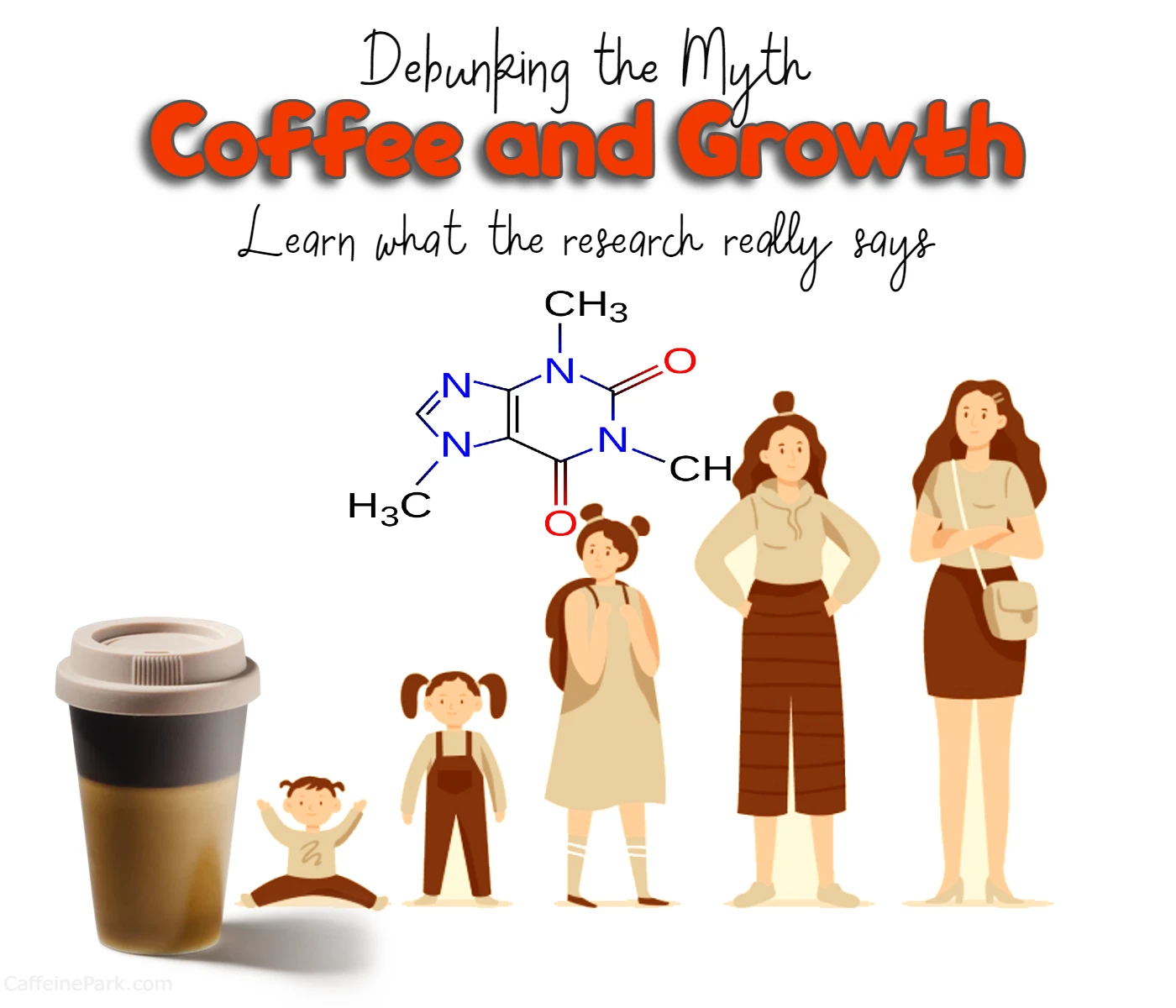
Hello, and welcome to my blog! Today, we’re going to talk about caffeine and diabetes, and how these two seemingly unrelated things can have an impact on your health. If you’re a regular coffee or tea drinker, you may be wondering how your favorite beverage affects your blood sugar levels. And if you have type 2 diabetes, you may be wondering whether or not you should be cutting back on caffeine. Well, the truth is that caffeine can have an impact on your blood sugar levels, and it’s important to understand how it affects your body.
In this blog post, we’ll explore the relationship between caffeine and diabetes, including how caffeine affects your blood sugar levels, why it has this effect, and how much caffeine is too much. We’ll also discuss the benefits of coffee and tea for reducing your risk of type 2 diabetes, as well as some tips for managing your caffeine intake if you have diabetes. So if you’re interested in learning more about how caffeine affects your health, make sure to read to the end of this blog post!
But before we dive in, I want to remind you that this blog post is for informational purposes only. If you have diabetes, it’s important to work with your healthcare provider to develop a plan for managing your blood sugar levels, including how much caffeine you can safely consume. And if you’re not sure whether or not you have diabetes, it’s important to get tested so you can take steps to protect your health. So with that in mind, let’s get started!
How Does Caffeine Affect Blood Sugar Levels in Diabetes?
Research has shown that people with type 2 diabetes react differently to caffeine than those without the condition. Caffeine can cause blood sugar and insulin levels to rise for those with the disease. For example, one study found that individuals with type 2 diabetes who took a 250-milligram caffeine pill at breakfast and another at lunchtime, equivalent to two cups of coffee per meal, experienced an 8% increase in blood sugar compared to days when they did not consume caffeine. Their blood sugar levels also increased more after each meal.
Caffeine can reduce insulin sensitivity, meaning that cells in the body become less responsive to insulin, a hormone that enables sugar to enter cells to be used as energy. Consequently, cells absorb less sugar from the bloodstream after eating or drinking, and the body produces more insulin. For those with type 2 diabetes, this can be problematic as their bodies already have difficulties using insulin effectively, resulting in high blood sugar levels after meals. Caffeine may make it even harder to regulate blood sugar, which can increase the risk of complications such as nerve damage and heart disease.
The Effect of Caffeine on Your Health
If you have type 2 diabetes, your body already doesn’t use insulin well. After meals, your blood sugar rises higher than normal. Caffeine may make it tougher to bring it down to a healthy point. This may lead to too-high blood sugar levels. Over time, this may raise your chance of diabetes complications, like nerve damage or heart disease.
Scientists are still learning how caffeine affects your insulin and blood sugar levels. But they think it may work this way:
- Caffeine raises levels of certain stress hormones, like epinephrine (also called adrenaline). Epinephrine can prevent your cells from processing as much sugar. It may also keep your body from making as much insulin.
- It blocks a protein called adenosine. This molecule plays a big role in how much insulin your body makes. It also controls how your cells respond to it. Caffeine keeps adenosine which plays a big role in how much insulin your body makes.
- It takes a toll on your sleep. Too much caffeine can keep you awake. Lack of sleep may also lower your insulin sensitivity.
How Much Caffeine Is Safe for People with Diabetes?
It only takes approximately 200 milligrams of caffeine to impact blood sugar levels, which is equivalent to one to two cups of coffee or three to four cups of black tea. However, people with diabetes may have different reactions to caffeine depending on their age, weight, and other factors. Research has shown that regular coffee drinkers with diabetes do not have higher blood sugar levels than those who do not drink coffee. Some experts believe that the body can adapt to a certain amount of caffeine over time. However, other studies have suggested that caffeine can still cause blood sugar spikes, even for habitual coffee drinkers.
It is recommended that people with diabetes consult with their healthcare provider or a dietitian to determine if caffeine is impacting their blood sugar levels. They may suggest testing blood sugar levels throughout the morning after consuming a usual amount of coffee or tea and then testing after avoiding caffeine for several days. Comparing these results can help identify if caffeine is having an impact.
Testing Your Blood Sugar
To find out if caffeine raises your blood sugar, talk to your doctor or a dietitian. You might test your blood sugar throughout the morning after you have your usual cup of coffee or tea. Then you’ll test after you skip the drink for a few days. When you compare these results, you’ll know if caffeine has an impact.
What About Caffeine in Coffee and 2 diabetes?
Coffee is one of the most popular beverages in the world, and it’s a major source of caffeine. As we’ve discussed earlier, caffeine can have an impact on blood sugar levels, which can be a concern for people with type 2 diabetes. However, research suggests that coffee may actually be beneficial for people with this condition.
Studies have found that drinking coffee may lower your risk of developing type 2 diabetes in the first place. Experts believe this may be due to the antioxidants in coffee, which can reduce inflammation in the body that may contribute to the development of diabetes. However, if you already have type 2 diabetes, the caffeine in coffee may make it harder to control your blood sugar levels.
It’s important to note that not all people with type 2 diabetes react to caffeine in the same way. Some people may be able to handle more caffeine than others, and some may find that coffee doesn’t affect their blood sugar levels at all. If you’re unsure about how caffeine affects your blood sugar levels, talk to your doctor or a registered dietitian. They can help you determine if you need to make any changes to your caffeine intake, and if so, how much you should consume.
Summary
In this conversation, the topic of discussion was the relationship between caffeine and diabetes. The discussion began by highlighting the effect of caffeine on blood sugar levels and how it can make it harder for people with type 2 diabetes to control their blood sugar. The conversation then delved into the potential reasons behind caffeine’s effect on insulin and blood sugar, including the role of stress hormones and the blocking of certain proteins. The discussion also covered how much caffeine is too much and how people can test their blood sugar to determine if caffeine has an impact on their levels.
The conversation also touched on the potential benefits of coffee for reducing the risk of type 2 diabetes, but how the caffeine in coffee may still have an adverse effect on those who already have the condition. The article concluded with a call to action for readers to learn more about the potential impact of caffeine on their blood sugar levels and to talk to their doctor or dietitian to determine the best approach for managing their diabetes.
FAQs
Caffeine can affect how your body responds to insulin, the hormone that allows sugar to enter your cells and get changed into energy. It may lower your insulin sensitivity, meaning your cells don’t absorb as much sugar from your blood after you eat or drink. This causes your body to make more insulin, so you have higher levels after meals. If you have type 2 diabetes, your body already doesn’t use insulin well. After meals, your blood sugar rises higher than normal, and caffeine may make it tougher to bring it down to a healthy point.
It only takes about 200 milligrams of caffeine to affect your blood sugar. That’s the amount in about one or two cups of brewed coffee or three or four cups of black tea. You may be able to handle more or less caffeine, depending on factors like your age and weight. It’s best to talk to your doctor or a dietitian to find out how much caffeine is safe for you.
Yes, but it’s important to be mindful of your caffeine intake and monitor your blood sugar levels. You may want to test your blood sugar throughout the morning after you have your usual cup of coffee or tea, and then test after you skip the drink for a few days. This can help you determine if caffeine has an impact on your blood sugar. If you find that caffeine raises your blood sugar levels, you may want to switch to decaf or limit your caffeine intake.
Read More:





